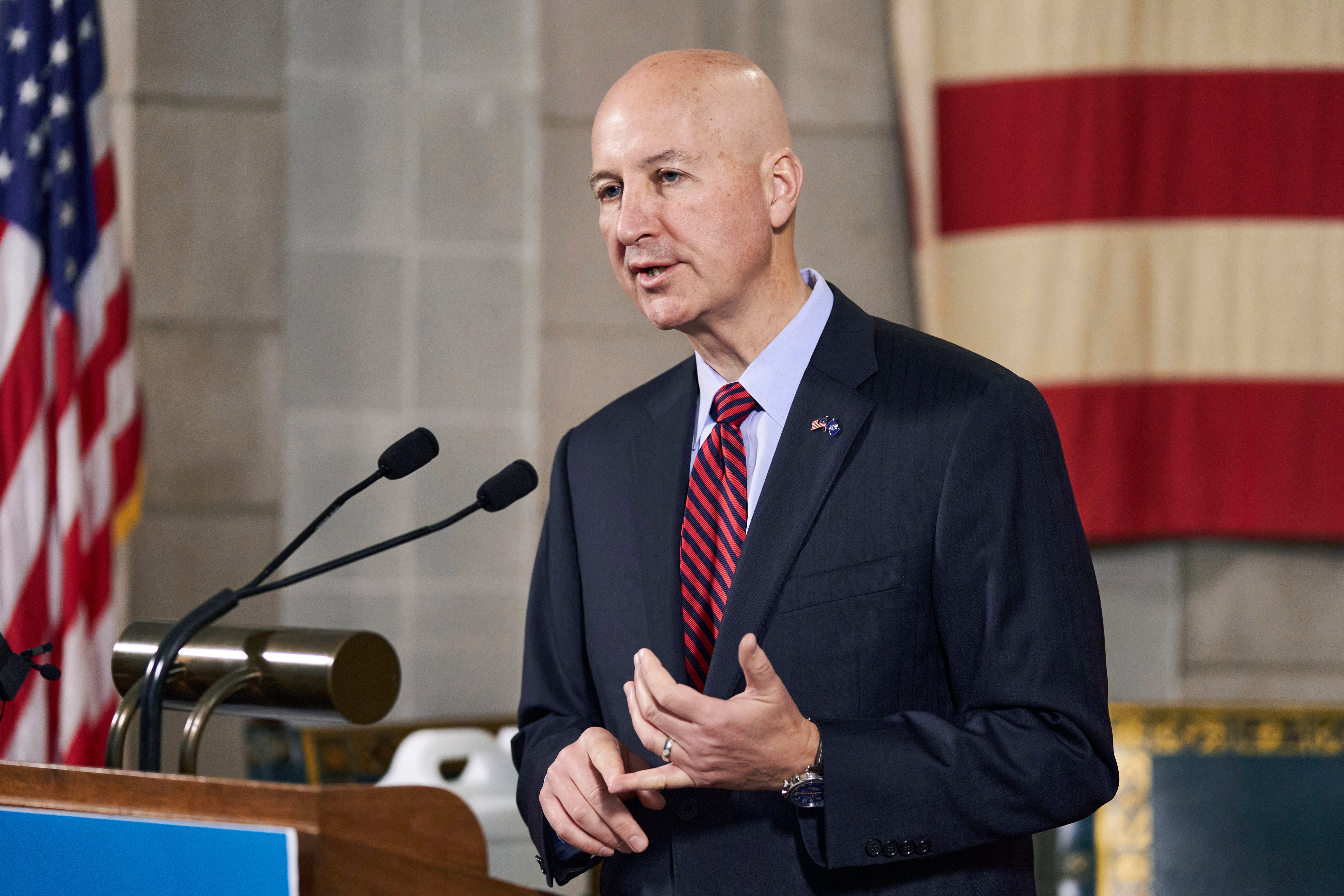Expanded Medicaid begins in Nebraska after years of dispute
Nebraska will officially offer expanded Medicaid coverage to low-income people after years of political battles in the Legislature, a statewide ballot campaign that led voters to approve it and a nearly two-year rollout that left some residents in health care limbo

Your support helps us to tell the story
From reproductive rights to climate change to Big Tech, The Independent is on the ground when the story is developing. Whether it's investigating the financials of Elon Musk's pro-Trump PAC or producing our latest documentary, 'The A Word', which shines a light on the American women fighting for reproductive rights, we know how important it is to parse out the facts from the messaging.
At such a critical moment in US history, we need reporters on the ground. Your donation allows us to keep sending journalists to speak to both sides of the story.
The Independent is trusted by Americans across the entire political spectrum. And unlike many other quality news outlets, we choose not to lock Americans out of our reporting and analysis with paywalls. We believe quality journalism should be available to everyone, paid for by those who can afford it.
Your support makes all the difference.Nebraska will officially offer expanded Medicaid coverage to low-income people starting Thursday after years of wrangling over it in the Legislature a statewide ballot campaign that led voters to approve it and a nearly two-year rollout that left some people in health care limbo.
The state will provide coverage to 10,288 residents who have signed up so far, a number roughly in line with the state's projections. State officials expect expanded enrollment to rise to about 90,000 within a few years.
“This expansion is an excellent opportunity” for people who are now eligible, said Dannette Smith, executive director of the Nebraska Department of Health and Human Services.
Nebraska was among several conservative states where state lawmakers and governors declined to expand Medicaid, only to see the issue go to voters. Republican Gov. Pete Ricketts and his GOP predecessor, Dave Heineman, both argued that expansion would be too costly for the state, and lawmakers rejected six attempts in as many years to adopt it as an optional part of President Barack Obama's 2010 health care law.
The expansion became law in 2018 when voters approved citizen-led measures in Nebraska, Utah and Idaho. Utah and Idaho officials later attached work requirements to their programs.
In Nebraska, the Ricketts administration implemented two tiers of coverage: a “basic” plan available to all newly qualified recipients and a “prime” plan available to people who are working, in school, volunteering or caring for a relative. The prime plan includes coverage for dental and vision care and over-the-counter drugs.
State health officials have defended the expansion's slower-than-typical launch and their two-tiered approach, calling it a massive undertaking that required numerous layers of federal approval.
Other challenges included computer system upgrades for processing applicants; hiring more workers; and negotiating new contracts with the private, managed-care companies that will serve Medicaid recipients. The contractors will administer the program, dubbed Heritage Health, with a financial incentive to provide health care services while keeping costs low.
“There was a lot of work that had to go into this,” said Ricketts, who opposed the expansion but promised to follow the will of voters.
Jeremy Brunssen, the state's interim Medicaid and Long-Term Care director, said state officials also took steps to provide enrollee information in seven different languages.
Brunssen said the state has also hired more than 100 new employees to answer questions and process applications, and processing times are averaging around seven days. State officials have also held public meetings throughout the state to raise public awareness about the expansion.
“Our teams have been very hard at work making sure that we work together with community partners and community stakeholders who often have the closest contact with Nebraskans who might eligible for Medicaid,” he said.
Advocates note that similar Medicaid expansions took less than six months in Louisiana and Virginia and less than two months in Alaska, although critics argue that those states faced problems because they went too quickly. Expansion took longer in Maine, primarily because of opposition from elected officials.
Coverage in Nebraska is now available to adults ages 19 to 64 who earn up to 138% of the federal poverty level — about $17,609 for one person and $36,156 for a family of four. The federal government will pay 90% of the program’s cost in 2020 and subsequent years.
___
Follow Grant Schulte on Twitter: https://twitter.com/GrantSchulte